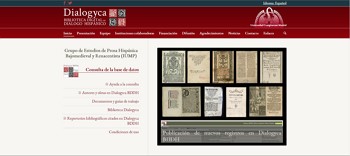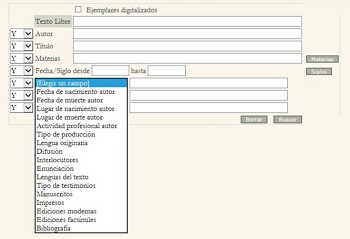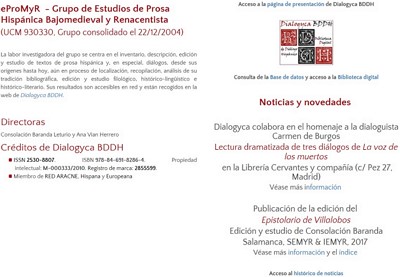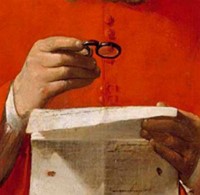DIALOGYCA BDDH: DIGITAL LIBRARY OF HISPANIC DIALOGUE
|
Description |
Dialogyca BDDH is a database and virtual library specialising in Iberian literary dialogue. It comprises texts that date from the Middle Ages to the present day, either written in the different languages of the Peninsula or translated to or from them. Dialogue is humanity’s oldest prose genre, and the one that has best served to express ideas, controversies, cultural advances and regressions. Although publications that have appeared since the 1970s have provided a theoretical framework for the genre, there is still a lack of a comprehensive corpus to demonstrate and contrast this theoretical evolution, while at the same time facilitating the transmission of these texts. The aim of Dialogyca BDDH is to progressively fill this gap.
|
How does it work |
Dialogyca BDDH is structured around the concept of the work or opus. As such, it reconstructs the textual transmission of each dialogue and its literary characteristics by taking into consideration all its testimonies, both manuscripts and printed matter. It is not only intended for philologists; given the wide variety of subjects contained in the dialogues, it is also of great use to historians, economists, architects, doctors, mathematicians, biologists, philosophers and many more specialists and historiographers in those disciplines that have resorted to this genre over the centuries.
Dialogyca BDDH has been designed in collaboration with Micronet. The company provides its Knosys application, which meets the requirements of a project that includes Digital Humanities and a specialised digital library and database. It also has the technology needed to link data to other libraries worldwide, and that also links them to Dialogyca BDDH manuscripts or printed matter.
It offers open access and, with prior registration, users can download the digital samples of manuscripts or printed matter, together with their corresponding codicological or typo-bibliographic descriptions and the specialised bibliography for each work. Searches can be performed on the Dialogyca BDDH website.
|
Advantages |
Dialogyca BDDH contributes to the recovery of Hispanic bibliographic and literary heritage by providing analytical files that examine the philological aspects of each dialogue, and by digitising the corresponding handwritten and/or printed testimonies. It therefore selects and presents qualified information on this corpus to both specialists and users who are simply interested in a particular subject. At the same time as it facilitates access to testimonies from different historical periods in libraries spread around the world.
|
Where has it been developed? |
Dialogyca BDDH has been developed by the Late Medieval and Renaissance Hispanic Prose Study Group, a team of excellence at the Menéndez Pidal University Institute of the Complutense University of Madrid (eProMyR nº 930330). Its development has been uninterrupted since 2005. The project is still in progress and has been funded both nationally (state and regional) and internationally since its inception. It became fully functional on the internet in 2010. Since then, it has continued to sign agreements with Spanish and foreign libraries and it collaborates with other research groups, such as BIESES, BSF, CLARISEL, PHEBO and SIELAE, with whom it has formed the ARACNE network of Digital Humanities and Hispanic Literature. Since 2015 ARACNE has had a metasearch engine that currently allows integrated access to 14 different resources from the groups involved. Other projects with metadata adapted to Dublin Core and the proposed quality standards will gradually be incorporated.
|
And also: |
The eProMyR group plays a highly active role in the dissemination of philological, literary and bibliographic knowledge (through congresses, seminars, regular activities, individual or collective publications and in-house doctoral theses). Dialogyca BDDH transfers knowledge to various libraries that redirect their users to it from their OPACs by means of linked data. It has an Intellectual Property Registration number, M-000333/2010, trade mark OEPM 2855599-6, ISSN 2530-8807 and ISBN 978-84-691-8286-4.
|
Contact |
|
© Office for the Transfer of Research Results – UCM |
|
PDF Downloads |
|
Classification |
|
Responsible Researcher |
Consolación Baranda Leturio: dialogycabddh@pdi.ucm.es
Mercedes Fernández Valladares
Ana Vian Herrero
Department: Menéndez Pidal University Institute
Faculty: Philology






